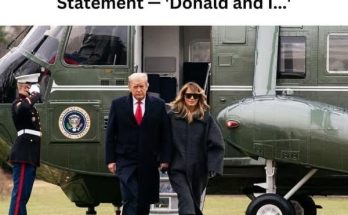
A significant rift has emerged within Republican ranks as lawmakers grapple with competing priorities between ambitious campaign promises and legislative realities. The controversy centers on the implementation of proposed government reforms and has exposed fundamental disagreements about timing, strategy, and political risk management within the party.
The growing tension threatens to complicate the administration’s legislative agenda and highlights the complex dynamics between different factions of the Republican coalition as they navigate the challenges of governing versus campaigning.
The Department of Government Efficiency Vision
The Department of Government Efficiency (DOGE) initiative, spearheaded by tech entrepreneur Elon Musk, was designed as a revolutionary approach to reducing government waste and streamlining federal operations. The ambitious project promised to identify billions of dollars in potential savings through systematic analysis of government programs, bureaucratic redundancies, and inefficient spending patterns.
Musk’s involvement in the initiative brought significant attention and credibility to the effort, given his track record of transforming industries and implementing dramatic operational changes in his various business ventures. His approach to government efficiency mirrored many of the strategies he had employed in restructuring companies like Twitter and optimizing operations at Tesla and SpaceX.
The DOGE initiative conducted comprehensive reviews of federal agencies, examining everything from staffing levels and organizational structures to program effectiveness and regulatory frameworks. The team’s analysis reportedly identified numerous opportunities for cost reduction and operational improvement across virtually every department of the federal government.
However, the transition from identifying potential savings to implementing actual cuts has proven more challenging than initially anticipated. The complexities of the legislative process, combined with political considerations and competing priorities, have created obstacles that were perhaps not fully appreciated during the initial planning phases of the initiative.
The disconnect between DOGE recommendations and legislative implementation has become a source of growing frustration among fiscal conservatives who had high expectations for rapid and dramatic changes to government spending patterns.
Conservative Frustration with Legislative Priorities
House Republicans who campaigned on promises of fiscal responsibility and government reform have expressed increasing disappointment with what they perceive as insufficient action on DOGE recommendations. These lawmakers argue that the party’s recent legislative package, while addressing important policy priorities, failed to incorporate the spending reductions that were central to their campaign messaging.
The criticism reflects a broader tension within the Republican Party between different policy priorities and approaches to governance. Some members prioritize immediate implementation of tax reforms and other agenda items, while others insist that spending cuts should be addressed simultaneously to maintain fiscal responsibility.
Conservative House members have privately expressed concerns that delaying spending cuts could undermine the party’s credibility with voters who elected them specifically to address government waste and excessive spending. This group argues that failing to act quickly on DOGE recommendations could be perceived as abandoning core campaign promises.
The frustration has been compounded by the recognition that political windows for implementing controversial spending cuts may be limited. Some Republicans worry that waiting until after the 2026 midterm elections could result in a loss of political momentum and potentially reduced congressional majorities that would make cuts even more difficult to achieve.
Several conservative lawmakers have pointed out that government spending tends to increase over time, making it progressively more difficult to implement reductions as programs become entrenched and develop constituencies that resist change.
Elon Musk’s Public Criticism
Musk’s decision to publicly criticize the House-passed legislation marked a significant escalation in the internal debate over DOGE implementation. His comments during a television interview expressed disappointment with what he characterized as a massive spending bill that would increase rather than decrease the federal deficit.
“I was, like, disappointed to see the massive spending bill, frankly, which increases the budget deficit, not just decrease it, and undermines the work that the DOGE team is doing,” Musk stated during his interview with CBS Sunday Morning. His remarks carried particular weight given his prominent role in developing the efficiency recommendations and his status as a key advisor to the administration.
Musk’s criticism reflected his frustration with what he viewed as a disconnect between the detailed work his team had conducted to identify savings opportunities and the actual legislative outcomes being produced by Congress. His comments suggested that months of analysis and recommendations were being set aside in favor of other political priorities.
The public nature of Musk’s criticism was notable, as it represented a rare instance of open disagreement between a key administration advisor and congressional Republican leadership. This type of public dispute typically indicates more significant behind-the-scenes tensions than might otherwise be apparent to outside observers.
Musk’s business background and approach to organizational change may have contributed to his expectations for rapid implementation of recommended reforms. The pace of legislative change often differs significantly from the speed at which private sector organizations can implement operational changes.
Political Calculations and Electoral Concerns
The debate over DOGE implementation has been complicated by strategic political considerations related to the 2026 midterm elections. Some Republican lawmakers and strategists have reportedly suggested that implementing controversial spending cuts might be politically risky in the immediate term, potentially providing ammunition for Democratic opponents in upcoming campaigns.
This perspective reflects a cautious approach to governance that prioritizes electoral considerations alongside policy objectives. Lawmakers who hold this view argue that maintaining congressional majorities should be the primary short-term goal, as losing control of Congress would make any future reforms significantly more difficult to achieve.
The electoral calculation involves weighing the potential negative consequences of implementing specific cuts against the risk of appearing to abandon campaign promises. Some cuts might affect popular programs or constituencies that could mobilize against Republican candidates in competitive districts.
However, this approach has drawn sharp criticism from fiscal conservatives who argue that delaying necessary reforms for political convenience undermines the party’s credibility and wastes the political capital that comes with unified government control.
The tension between governing and campaigning represents a classic dilemma in American politics, where the policies that might be most effective in the long term may not always align with the strategies most likely to produce short-term electoral success.
Ron DeSantis Weighs In
Florida Governor Ron DeSantis added his voice to the criticism of congressional Republicans, using social media to express his disappointment with the legislative approach to DOGE implementation. DeSantis, who served in Congress before becoming governor, brought both legislative experience and executive perspective to his critique.
In his social media post, DeSantis specifically highlighted the personal and professional costs that Musk had accepted in order to lead the efficiency effort. He noted that Musk had faced “massive incoming — including attacks on his companies as well as personal smears — to lead the effort on DOGE.”
DeSantis characterized the congressional response as “demoralizing” and argued that the failure to implement meaningful spending reductions represented “a betrayal of the voters who elected them.” His criticism carried particular weight given his own political profile and potential future ambitions within the Republican Party.
The Florida governor’s involvement in the debate demonstrated that concerns about DOGE implementation extended beyond Congress to include other prominent Republican leaders at the state level. His criticism suggested that the issue could become a broader source of tension within the party if not resolved satisfactorily.
DeSantis specifically criticized the decision to “fully fund things like USAID,” pointing to foreign aid as an example of spending that could be reduced or eliminated without affecting domestic priorities that might be more popular with Republican voters.
Administrative Explanations and Process Clarifications
White House Deputy Chief of Staff Stephen Miller attempted to address some of the confusion surrounding DOGE implementation by explaining the technical legislative processes involved in implementing spending cuts. Miller’s clarification highlighted the complexity of the federal budget process and the different mechanisms available for achieving spending reductions.
Miller explained that DOGE cuts would need to be implemented through specific legislative vehicles, such as rescissions packages or appropriations bills, rather than through the comprehensive policy package that had been passed by the House. This technical distinction was important for understanding why the initial legislation did not include the spending reductions that many had expected.
“DOGE cuts would have to be done through what is known as a rescissions package or an appropriations bill,” Miller clarified in his social media post. “The Big Beautiful Bill is NOT an annual budget bill and does not fund the departments of government. It does not finance our agencies or federal programs.”
This explanation helped clarify the procedural reasons why DOGE recommendations had not been included in the initial legislative package, but it did not fully satisfy critics who argued that the administration and congressional leadership should have developed a more integrated approach to policy implementation.
The technical nature of the budget process often creates confusion among both lawmakers and the public about when and how different types of spending changes can be implemented. Miller’s explanation highlighted the importance of understanding these procedural requirements for effective governance.
Congressional Voices Demanding Action
Several prominent Republican lawmakers used social media and public statements to maintain pressure for rapid implementation of DOGE recommendations. Representative Marjorie Taylor Greene of Georgia was particularly vocal in her calls for aggressive action on spending cuts.
“Personally I want to pass DOGE cuts every single week until the bloated out of control government is reigned back in,” Greene wrote in one of her social media posts. Her statement reflected the urgency that some conservatives feel about addressing federal spending levels.
Greene’s comments also highlighted the broader fiscal concerns that motivate many Republican lawmakers. “As a country, we cannot survive our national debt and honestly, we may be past the point of return,” she continued, expressing alarm about the long-term sustainability of current spending patterns.
Representative Mary Miller of Illinois echoed similar themes in her own social media communications. “Every DOGE cut targets waste, fraud, and abuse. Congress MUST codify them quickly. What’s the holdup?!” Miller wrote, expressing frustration with the pace of implementation.
Senator Rand Paul of Kentucky, known for his consistent advocacy of fiscal restraint, announced his intention to vote against the comprehensive legislative package, citing concerns about its impact on the federal deficit. Paul’s position demonstrated that opposition to the current approach extended to the Senate as well as the House.
“The House’s version of the One Big Beautiful Bill would explode the debt by $4 trillion, undermining all the cuts @DOGE has made. There’s nothing beautiful about that,” Paul wrote, directly contradicting the positive characterization of the legislation offered by its supporters.
House Leadership Response and Future Plans
House Speaker Mike Johnson attempted to address the growing criticism by reiterating the administration’s explanation of the legislative process and outlining plans for future action on DOGE recommendations. Johnson’s response sought to balance acknowledgment of conservative concerns with support for the broader legislative strategy.
Johnson pointed to Miller’s explanation of the procedural requirements for implementing spending cuts, emphasizing that the current legislative package was not the appropriate vehicle for such reductions. He argued that the House-passed bill was intended to “build on DOGE’s success” rather than directly implement its recommendations.
The Speaker also provided assurances about future legislative action, stating that the Republican-led House was “eager and ready to act on DOGE’s findings” through appropriate procedural mechanisms. He specifically mentioned plans to “quickly pass a package to codify the cuts” and to use “the appropriations process to swiftly implement President Trump’s 2026 budget.”
Johnson’s response reflected the challenge that congressional leadership faces in managing competing demands from different factions within the Republican caucus. His statements sought to maintain unity while addressing legitimate concerns about fiscal responsibility and campaign promise fulfillment.
The Speaker’s emphasis on future action was designed to provide reassurance to fiscal conservatives while maintaining the current legislative timeline for other priority items. However, the effectiveness of this approach would ultimately depend on whether concrete action followed the verbal commitments.
The Broader Implications for Republican Governance
The controversy over DOGE implementation reflects broader challenges that the Republican Party faces in translating campaign promises into governing reality. The tension between different policy priorities, procedural constraints, and political considerations demonstrates the complexity of effective governance in the American system.
The debate also highlights the ongoing influence of external advisors and advocates in shaping Republican policy discussions. Musk’s prominent role in both developing recommendations and criticizing implementation demonstrates how individuals outside the traditional political establishment can significantly impact policy debates.
The fiscal concerns raised by DOGE supporters reflect legitimate long-term challenges facing the federal government. The national debt and annual deficits represent structural problems that will require sustained political attention and potentially difficult policy choices to address effectively.
However, the political reality of implementing spending cuts often involves navigating complex constituencies, competing priorities, and electoral considerations that can make rapid change difficult to achieve. The current debate illustrates these challenges while highlighting the ongoing tension between governing and campaigning.
Public Trust and Political Credibility
The dispute over DOGE implementation has important implications for public trust in political institutions and the credibility of campaign promises. Voters who supported Republican candidates based on commitments to reduce government spending and waste may become disillusioned if they perceive that those promises are being abandoned or delayed for political convenience.
The public nature of the disagreements, particularly Musk’s televised criticism and the social media exchanges between various political figures, ensures that these debates are visible to ordinary citizens who may draw their own conclusions about political priorities and commitment to reform.
The controversy also demonstrates the importance of setting realistic expectations about the pace and process of policy implementation. Complex changes to government operations typically require more time and involve more procedural steps than might be apparent to those outside the political process.
Looking Forward: Challenges and Opportunities
The resolution of the DOGE implementation controversy will likely set important precedents for how the Republican Party approaches fiscal policy and government reform during the remainder of its time in unified control of government. The outcome will affect both policy substance and political dynamics within the party.
If congressional Republicans successfully implement significant spending cuts through the processes outlined by administration officials, it could demonstrate that the party can deliver on campaign promises despite procedural complexities. Such success might strengthen the party’s credibility with fiscal conservatives and provide a model for future reform efforts.
However, if implementation continues to be delayed or watered down, it could exacerbate internal tensions within the Republican coalition and potentially affect the party’s electoral prospects in 2026. The political consequences of failing to deliver on fiscal promises could be significant, particularly among the conservative base that prioritizes such issues.
The debate also raises questions about the optimal timing and sequencing of different policy priorities. The tension between addressing fiscal concerns and advancing other agenda items reflects the challenge of managing multiple priorities simultaneously within the constraints of the legislative process.
Conclusion: Governance in Practice
The controversy surrounding DOGE implementation provides a revealing case study in the challenges of translating campaign promises into governing reality. The disagreements between fiscal conservatives, congressional leadership, and administration officials demonstrate the complex dynamics involved in managing a diverse political coalition while navigating procedural constraints and electoral considerations.
The outcome of this debate will have implications that extend beyond the specific question of spending cuts to encompass broader questions about political credibility, party unity, and effective governance. How Republican leaders resolve these tensions may influence both their policy legacy and their electoral prospects in the years ahead.
The involvement of high-profile figures like Musk and DeSantis ensures that these debates will continue to receive significant public attention, making their resolution even more important for the party’s overall political standing. The ultimate test will be whether the party can demonstrate that it can effectively govern while maintaining the support of its diverse coalition of supporters.


